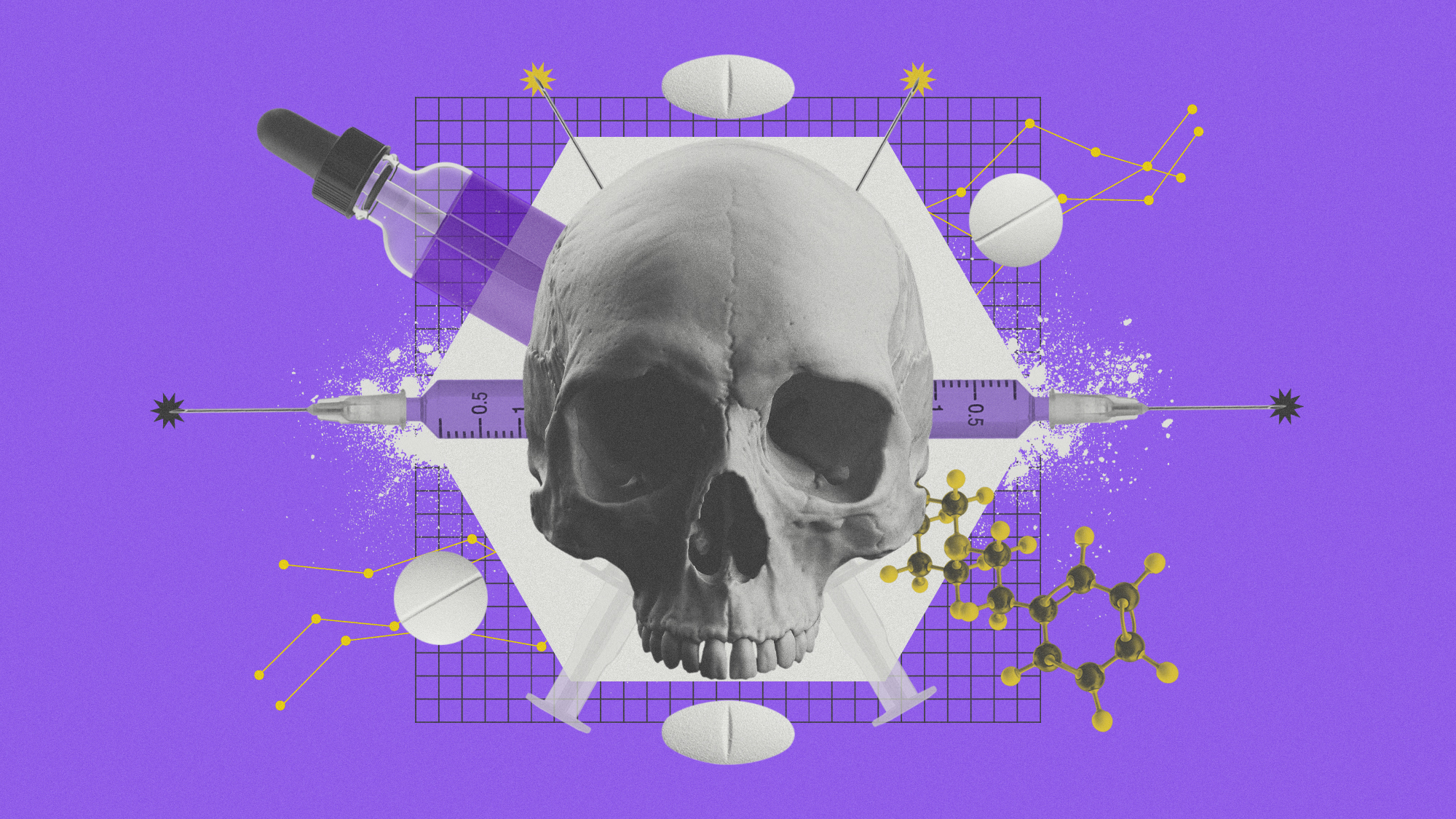Organ donations are increasingly coming from overdose victims


A free daily email with the biggest news stories of the day – and the best features from TheWeek.com
You are now subscribed
Your newsletter sign-up was successful
Americans are dying in ever-increasing numbers as the ongoing opioid crisis rages on. They're also forming a growing percentage of organ donors, a Centers for Disease Control and Prevention report released Friday shows.
In 2010, about 8.9 percent of organs came what the CDC calls "increased risk donors," Stat News describes. That term describes "donors at increased risk for transmitting" hepatitis B and C and HIV to recipients, the CDC report describes. About 4.3 percent of 2010's organ donors had died due to drug intoxication, and another 1.3 percent had reported injection drug use in their lifetime, with both of those factors qualifying them as IRDs.
But in 2013, the Public Health Service changed its guidelines, encouraging the testing of donors for hepatitis and HIV and separating donors in standard risk and increased risk categories. As of 2017, nearly all IRDs are tested for these viruses, allowing more of their organs to be safely used in transplants. There's also been an increase in infection monitoring once those organs are transplanted into recipients. This has all allowed the number and proportion of IRD transplants to safely triple from 2010, making up 26.3 percent of all deceased donors in 2017, the CDC numbers show.
The Week
Escape your echo chamber. Get the facts behind the news, plus analysis from multiple perspectives.

Sign up for The Week's Free Newsletters
From our morning news briefing to a weekly Good News Newsletter, get the best of The Week delivered directly to your inbox.
From our morning news briefing to a weekly Good News Newsletter, get the best of The Week delivered directly to your inbox.
America still faces a critical organ shortage, which scientists hope to solve by growing human organs, perhaps in other animals. But in the meantime, this report suggests further testing and virus prevention methods could allow for safe IRD transplants to continue. Read the whole CDC report here.
A free daily email with the biggest news stories of the day – and the best features from TheWeek.com
Kathryn is a graduate of Syracuse University, with degrees in magazine journalism and information technology, along with hours to earn another degree after working at SU's independent paper The Daily Orange. She's currently recovering from a horse addiction while living in New York City, and likes to share her extremely dry sense of humor on Twitter.
-
 What to know before filing your own taxes for the first time
What to know before filing your own taxes for the first timethe explainer Tackle this financial milestone with confidence
-
 The biggest box office flops of the 21st century
The biggest box office flops of the 21st centuryin depth Unnecessary remakes and turgid, expensive CGI-fests highlight this list of these most notorious box-office losers
-
 What are the best investments for beginners?
What are the best investments for beginners?The Explainer Stocks and ETFs and bonds, oh my
-
 Trump HHS slashes advised child vaccinations
Trump HHS slashes advised child vaccinationsSpeed Read In a widely condemned move, the CDC will now recommend that children get vaccinated against 11 communicable diseases, not 17
-
 A fentanyl vaccine may be on the horizon
A fentanyl vaccine may be on the horizonUnder the radar Taking a serious jab at the opioid epidemic
-
 Nitazene is quietly increasing opioid deaths
Nitazene is quietly increasing opioid deathsThe explainer The drug is usually consumed accidentally
-
 FDA OKs generic abortion pill, riling the right
FDA OKs generic abortion pill, riling the rightSpeed Read The drug in question is a generic version of mifepristone, used to carry out two-thirds of US abortions
-
 RFK Jr. vaccine panel advises restricting MMRV shot
RFK Jr. vaccine panel advises restricting MMRV shotSpeed Read The committee voted to restrict access to a childhood vaccine against chickenpox
-
 The UK’s opioid crisis: why the stats don’t add up
The UK’s opioid crisis: why the stats don’t add upThe Explainer A new report has revealed that the UK’s total of opioid-related deaths could be much greater than official figures show
-
 Texas declares end to measles outbreak
Texas declares end to measles outbreakSpeed Read The vaccine-preventable disease is still spreading in neighboring states, Mexico and Canada
-
 RFK Jr. shuts down mRNA vaccine funding at agency
RFK Jr. shuts down mRNA vaccine funding at agencySpeed Read The decision canceled or modified 22 projects, primarily for work on vaccines and therapeutics for respiratory viruses
